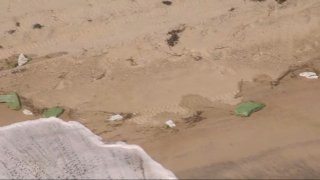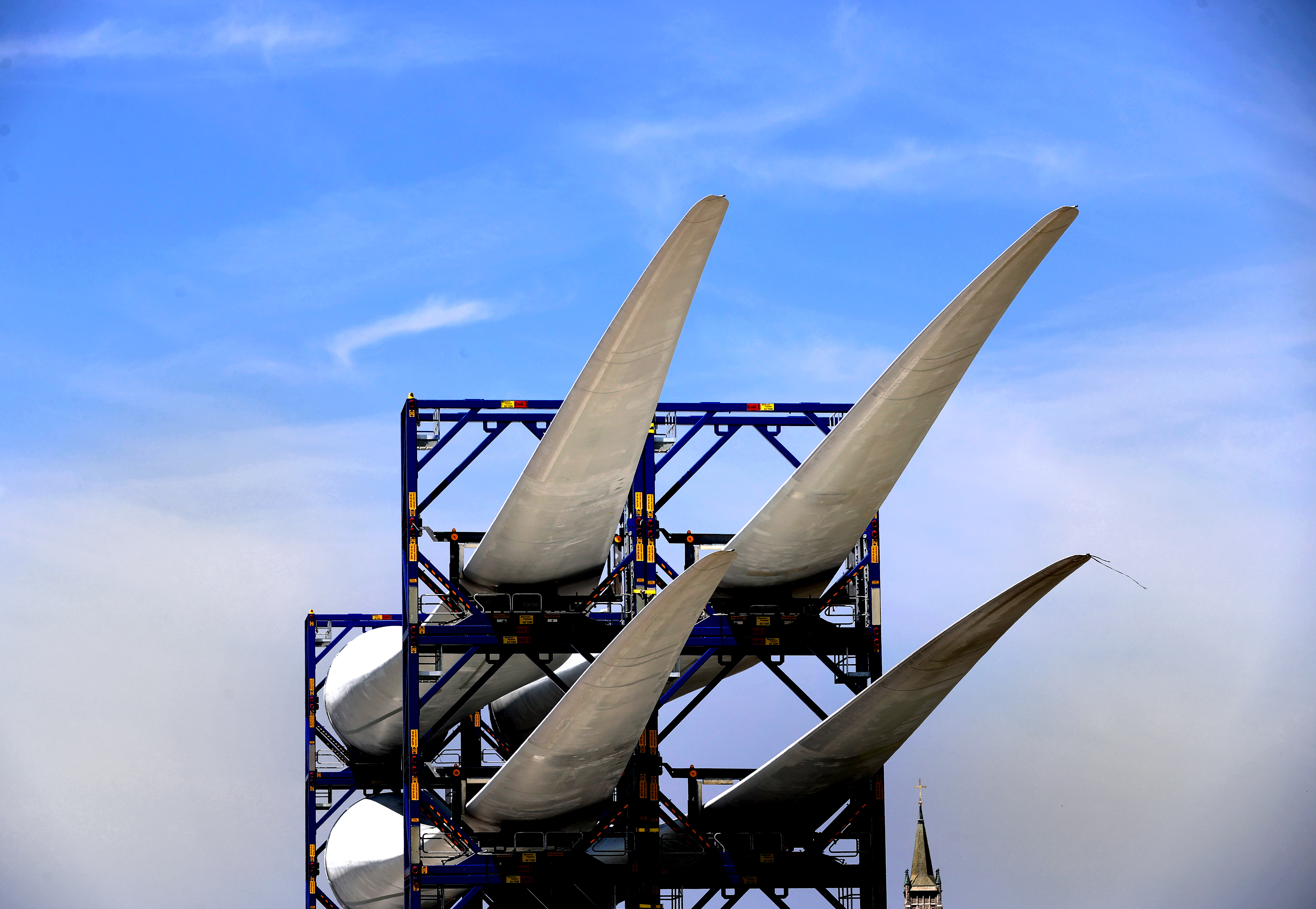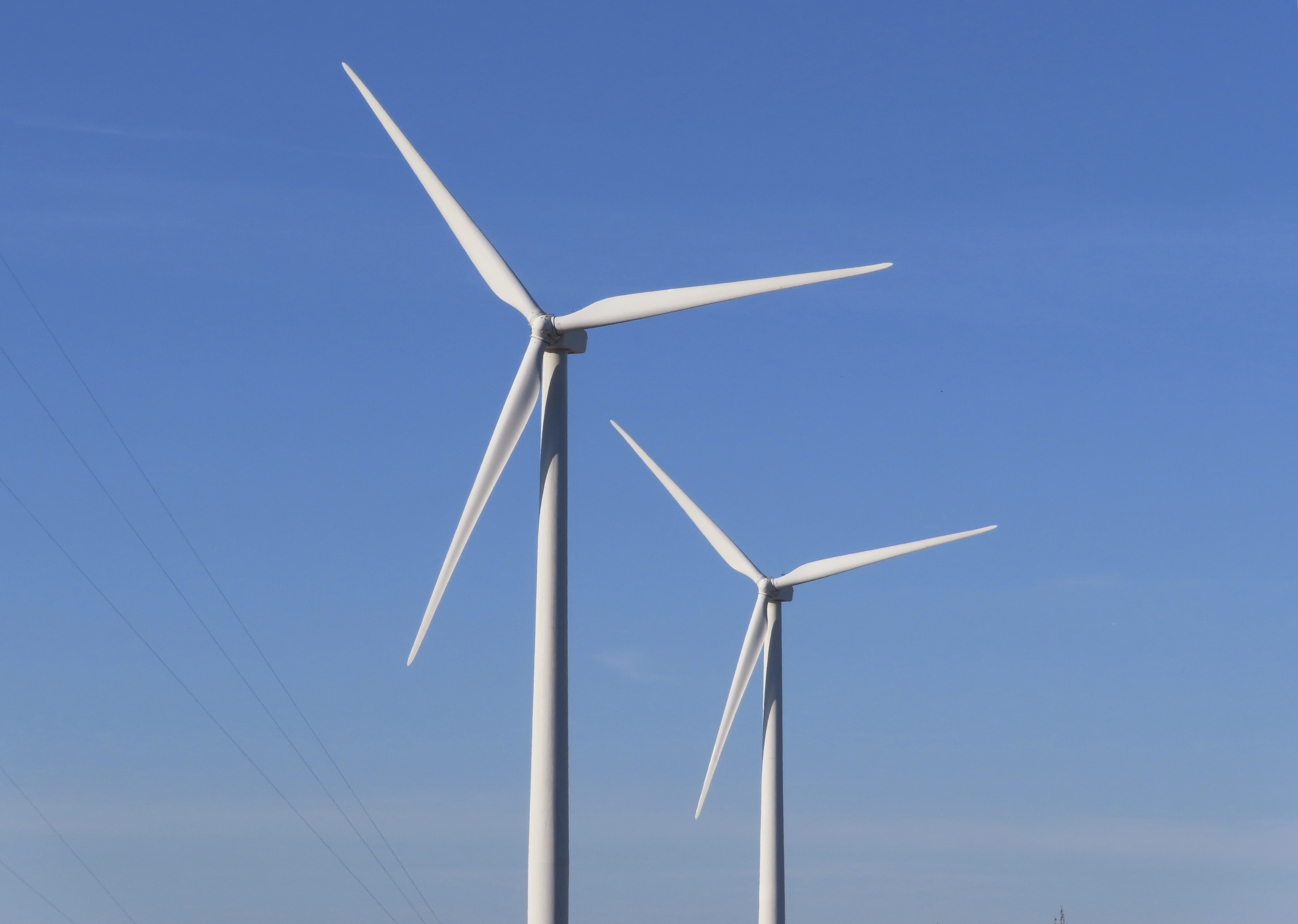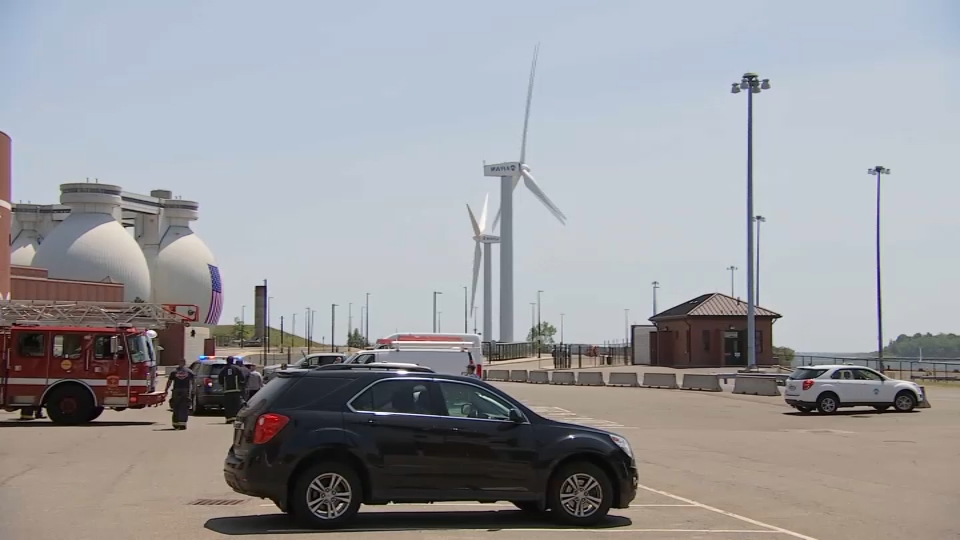
Operations at Vineyard Wind, the first offshore installation to provide clean power to Massachusetts and the region, are suspended after an incident over the weekend spread wind blade debris across Nantucket beaches.
Three days after a turbine being tested south of the islands experienced some kind of still-unspecified "incident," federal safety officials said Tuesday that work at Vineyard Wind is "shut down until further notice."
WATCH ANYTIME FOR FREE
>Stream NBC10 Boston news for free, 24/7, wherever you are. |
Vineyard Wind, a joint venture of Avangrid and Copenhagen Infrastructure Partners, has 10 operational turbines delivering about 136 megawatts of power to the regional grid. Project overseers eventually plan to scale up to 62 turbines providing 806 megawatts.
The Bureau of Safety and Environmental Enforcement said it was notified of a "turbine blade failure incident" at the Vineyard Wind 1 site on Saturday, an incident that Vineyard Wind publicly disclosed on Monday afternoon.
Get updates on what's happening in Boston to your inbox. Sign up for our >News Headlines newsletter.
"There were no injuries reported, but operations are shut down until further notice," a spokesperson for the federal agency said Tuesday afternoon. "BSEE is coordinating with the United States Coast Guard and state officials to ensure information sharing. A team of BSEE experts is onsite to work closely with Vineyard Wind on an analysis of the cause of the incident and next steps."
Vineyard Wind did not respond to inquires Tuesday afternoon about whether its operations were paused.
Craig Gilvarg, a spokesperson for Vineyard Wind, said shortly after 2:30 p.m. that the cause of the incident is still unknown.
Some time on Saturday, one of the three main 107-meter blades "experienced a breakage approximately 20 meters out from the root," Gilvarg said. The affected turbine was still undergoing testing as part of its commissioning process.
Although the damage threw debris into the water, the blade was not completely severed and most of it remains attached to the turbine, Gilvarg said. A photo published by the Nantucket Current showed one blade hanging directly downward, parallel to the tower.
GE, which manufactured and installed the turbines and blades, will investigate the root cause, Gilvarg said.
The company and U.S. Coast Guard are maintaining a "safety zone" of 500 meters around the impacted turbine, which is located about 15 miles south of Nantucket and Martha's Vineyard.
"VW deployed services vessels immediately to recover three large pieces from the ocean," Gilvarg said. "Debris of non-toxic fiberglass has washed up on Nantucket beaches and is being recovered by teams deployed by Vineyard Wind."
Company leaders announced earlier Tuesday they would deploy two teams of four people each to Miacomet Beach, Nobadeer Beach, Madequecham Beach, Pebble Beach, Tom Nevers Beach, Low Beach and Sconset Beach "for several days" to search for debris.
Nantucket's harbormaster closed the island's southern beaches to swimming late Tuesday morning, warning in a social media post about "large floating debris and sharp fiberglass shards."
"You can walk on the beaches, however we strongly recommend you wear footwear due to sharp, fiberglass shards and debris on the beaches," the harbormaster's office tweeted around 12:15 p.m.
Photos published by local residents and media, including the Nantucket Current, showed a high volume of green and white pieces of fiberglass and foam washed onto shore.
Maria Hardiman, a spokesperson for the state Executive Office of Energy and Environmental Affairs, said Vineyard Wind briefed state energy officials "on the incident and the planned safety response."
"There is a rigorous, federally approved safety process in place and we will continue to monitor the situation closely as Vineyard Wind, GE, and the federal Bureau of Safety and Environmental Enforcement conduct an analysis of the cause and their next steps," Hardiman said. "We are grateful to the trained personnel who addressed the situation so quickly."
Asked about debris on beaches during an unrelated event, Gov. Maura Healey said around noon that she was "just learning about that."
"I'm gonna go and get briefed by my team. Obviously, we'll work within our administration to work with local officials to take care of whatever issues there are," Healey said. "In terms of the turbine issue itself, we were notified by Vineyard Wind of what happened and they continue to keep us apprised on their progress."
When a reporter inquired if Vineyard Wind knows the underlying cause of the Saturday incident, Healey replied, "They're in the best position to answer that right now. They're still continuing to review and assess and they're continuing to update us as they go."
The incident prompted various groups to relitigate debate about the viability of offshore wind, an industry that Massachusetts policymakers view as essential to achieving a long-term shift toward clean energy sources.
"It is important that Vineyard Wind take responsibility for this incident and prevent future accidents," said Conservation Law Foundation President Brad Campbell. "But it's also important for the public to understand that wind farms have been safely constructed around the world with none of the marine disasters -- explosions, catastrophic oil spills -- and sacrifice of human safety associated with the fossil fuels they are replacing."
Paul Craney, a spokesperson for the right-leaning Massachusetts Fiscal Alliance, linked the incident to House and Senate Democrats pushing for new energy legislation. The House plans to vote Wednesday on a siting and permitting reform bill featuring procurement of more clean power.
"Not even one offshore wind factory has been completed and we’re already seeing red flags in the mildest of conditions. Now, the House is pushing for new authorization for so-called clean energy procurements, forcing ratepayers to subsidize this costly decision," Craney said. "It's cronyism at its worst. The people of Massachusetts shouldn't be forced to spend their hard-earned money on precarious energy sources resulting in environmental cleanups and unreliable, unproven outcomes."
Offshore wind installations have been in place for years in European countries but are just now gaining a foothold in the United States.
Any blade pieces that could land on Nantucket's southern beaches will likely be "pieces 1 square foot or less," Vineyard Wind said. The company urged any beachcombers not to move debris themselves and instead to contact Ian Campbell at (781) 983-8943 or icampbell@vineyardwind.com, or to report the location online.
"The debris consists of non-toxic fiberglass fragments ranging in size from small pieces to larger sections, typically green or white in color," Vineyard Wind said, adding, "Although the fiberglass fragments are not hazardous to people or the environment, Vineyard Wind recommends that only its employees or contractors collect and remove the debris."




